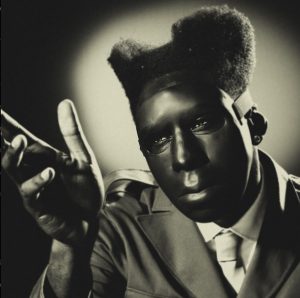Gene Editing: A Responsibility, Not A Right
January 11, 2019
On November 26, 2018, Chinese scientist He Jiankui announced the birth of human twins whose embryos he had successfully edited the genes of in an attempt to make them immune to Human Immunodeficiency Virus (HIV). He has done this without consulting the scientific community and has sparked backlash, due to the ethical dilemmas his actions have created. Gene editing is a risk, and we as a society cannot venture into it without ensuring that it is as safe as possible.
HIV targets T-cells, a type of immune cell that helps your body fight off invaders. It uses two proteins on the surface of T-cells to enter them and take them over. Without one protein, the virus can’t enter the cell and the cell remains uninfected. Some people are naturally born with a mutation which prevents the expression of one of those proteins, so they can’t be infected by HIV.
If this mutation is so helpful, why, you might ask, have we not developed wide spread treatments to encourage it? That’s because it isn’t fool proof: even people who inherit two copies of the gene aren’t always immune to HIV. Until scientists know why this happens, they don’t want to make it a common medical practice, due to worries over the ethics of using something they don’t fully understand.
In an attempt to encourage the expression of this mutation, He edited the genes of several embryos. Each couple in the experiment was made up of one person who tested positive for HIV and one who tested negative, however, because of medication, there was almost no risk of the disease being passed on. He simply wanted to make it impossible for the children to contract HIV later in their lives. His procedure and protocol for this experiment is currently under question, as other scientists are not sure if the couples were fully informed of the possible effects of gene editing. Additionally, scientists are disputing his claim that the gene editing was successful– they say that the expression of the immunity is more of a “mosaic” in the children, as not every cell has the edited gene.
He used the tool CRISPR to edit a particular gene in the embryos, which codes for one of the proteins linked to allowing the HIV virus to enter cells. CRISPR, discovered in 2012, is essentially the genetic version of a “cut and paste” tool– it can cut out a specific section of DNA and replace it with a version desired by the scientist. This is revolutionary, as it allows scientists to change the very fabric of life to anything they please, provided they know what characteristic each section of DNA codes for. CRISPR is also dangerous; any change made in an organism’s genetic code can be passed down to their offspring, sometimes changing the whole species for forever. It is not something to be used lightly, nor should it be used without prior approval. There’s also always the possibility that it won’t replace the correct section and will instead cut strings of DNA out randomly, having potentially disastrous effects.
This creates several questions: Are we ready to use CRISPR on humans, and when we are, what should we use it for? If scientists were to make a mistake, the results could be catastrophic. The general consensus among the scientific community is that CRISPR has not been studied enough to be used on humans, and when it is, it should only be used for serious medical issues that have no other realistic solutions. Changing one gene could have many more effects on the organism than predicted, so care must be taken with it.
We’ve all thought about becoming “superhuman” and with CRISPR that could theoretically become a reality. However, should we? I personally believe that gene editing needs to be explored far more before we even consider making a small change in the human genome. Even then, once we do fully understand this technology, we need to be very particular in what we change. He is on the right track by trying to make humans immune to a deadly disease, yet he cannot continue without determining exactly what effects the change will have. The gene that He is editing usually codes for a protein that acts as a receptor for particular signaling molecules outside of the cell, so certain cell functions could be incapacitated if that protein was absent. Replacing one problem with another is not effective, so we need to be sure that there will be minimal side effects of gene editing before we begin testing on live humans.
The power to change the biological code that makes up every living organism is a huge responsibility, and one that we cannot venture into without carefully considering the repercussions. We must be strict on what we use it for, and so we can’t let a few people freely do potentially monumental, world-changing experiments. If we are to use this power, we have to do it as a united global community and not as individuals. The ability to change the world is in our hands, are we capable of only using it for good?
For more information about CRISPR and gene editing, visit:
https://www.vox.com/2018/7/23/17594864/crispr-cas9-gene-editing
Sources Referenced:
https://www.statnews.com/2018/12/17/crispr-shocker-genome-editing-scientist-he-jiankui/






